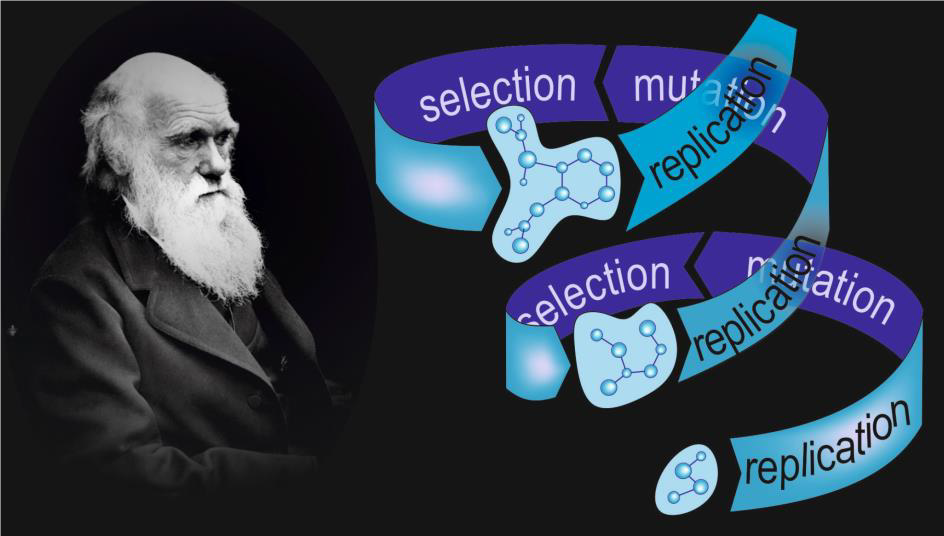Sijbren Otto awarded an ERC Synergy Grant

Prof. Sijbren Otto and colleagues from ESPCI Paris (Prof. Andrew Griffiths), Parmenides Foundation (Prof. Eörs Szathmáry) and Ben-Gurion University (Prof. Gonen Ashkenasy) were awarded a 13M euros ERC Synergy Grant for their “MiniLife” project. Their aim is to create, for the first time, a living system from completely abiotic components (so not based on DNA and proteins, but from synthetic molecules designed and synthesized in the lab).
Synthesizing life as we don't know it.
Can life be created in the laboratory? And can this be done using molecules that are very different from those we find in all current forms of life? These are among the questions that will be addressed in the “MiniLife” Synergy project. The project builds on the pioneering work by Otto on synthetic molecules that are able to reproduce by copying themselves. Aim is now to integrate these molecules into cell-like compartments and make the resulting cells grow, divide and undergo Darwinian evolution. The outcome will be a completely synthetic chemical system that approaches life more closely than any other such system to date, but differs from life as we know it.
Ashkenasy and Otto bring expertise in synthetic chemical self-replicating systems; Griffiths brings expertise on compartmentalization using microfluidics, and Szathmáry is a leading expert on theory of replicator evolution and computational modelling. Success would constitute a landmark achievement in basic science.

| Last modified: | 26 October 2023 4.03 p.m. |
More news
-
24 March 2025
UG 28th in World's Most International Universities 2025 rankings
The University of Groningen has been ranked 28th in the World's Most International Universities 2025 by Times Higher Education. With this, the UG leaves behind institutions such as MIT and Harvard. The 28th place marks an increase of five places: in...
-
05 March 2025
Women in Science
The UG celebrates International Women’s Day with a special photo series: Women in Science.
-
16 December 2024
Jouke de Vries: ‘The University will have to be flexible’
2024 was a festive year for the University of Groningen. In this podcast, Jouke de Vries, the chair of the Executive Board, looks back.
